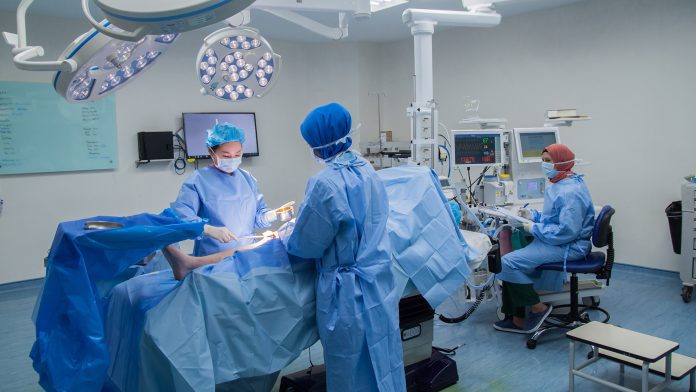
Researchers from Instituto Gulbenkian de Ciência (IGC) have presented a new approach to reducing postoperative bleeding after heart surgery.
Postoperative bleeding is one of the most common complications after heart surgery. In heart surgery, surgeons often use a cardiopulmonary bypass, a circuit of tubes and machinery that replicates the function of the heart and lungs.
The cardiopulmonary bypass allows surgeons to work inside the heart while it remains bloodless and still. Despite the utility of the circuit, it can affect blood circulation in the body, affecting the function of components that are responsible for coagulation. This means patients often require blood transfusions, which can increase the risk of death and raises healthcare costs.
Omega-6 fats could play a major role in postoperative bleeding
Researchers from IGC studied blood samples from 33 patients who underwent valve replacement heart surgery at the Hospital de Santa Maria, in Lisbon. The researchers wanted to see understand how molecular signatures could inform prognosis. The blood samples were taken six and 24 hours before and after the heart surgery. The researchers compared samples between patients with and without postoperative bleeding.
The researchers were intrigued by the levels of omega-6 fats present in the patient’s blood. They were surprised to find that patients with low levels of omega-6 fats in their blood before heart surgery needed twice as many transfusions than those with moderate or high levels.
These fats are known to regulate the aggregation of platelets to form clots, however, they were never previously associated with the risk of bleeding.
“We were very excited to find this signature that could be mechanistically related to the risk of bleeding after heart surgery and possibly decrease it,” said Tiago Velho, a cardiothoracic specialist at the Hospital de Santa Maria and lead author of the study.
Postoperative bleeding after heart surgery was also higher in patients whose omega-6 levels decreased between pre and postoperative samples. The researchers believe this is due to the relationship between surgery-related inflammation and coagulation.
The findings could make heart surgery safer
The researchers noticed that amount of inflammation, which is known to stimulate the function of platelets, seemed to relate to the variability of fats in the patient’s blood. Inflammation also appeared to decrease in patients who experienced significant bleeding. This suggested to the research teams that inflammation could be the reason behind alterations in blood fats and consequent bleeding after heart surgery.
“Assessing the levels of this fat in the blood before surgery could be more relevant than looking at the number of platelets”, explained Luís Moita, principal investigator of the Innate Immunity and Inflammation group at the IGC, and doctor by training.
Supplementation with omega-6 fats before surgery could be a safe and inexpensive way to secure normal blood function during and after surgery.
“We are already planning a study to evaluate the efficacy of this strategy in reducing bleeding and transfusions after surgery,” added Moita.









